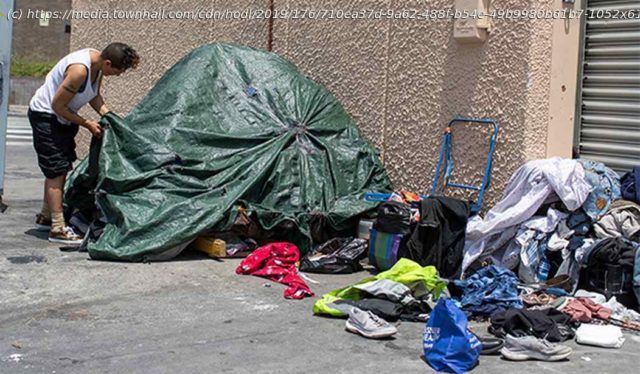Array
In what sounds like one of the weirdest cases in recent memory, the Supreme Court has ruled 6-3 in favor of municipalities in the case of City of Grants Pass, Oregon v. Johnson. The case involved whether municipalities could bar homeless people from “camping” in public spaces, addressing the question, “Does the enforcement of generally applicable laws regulating camping on public property constitute ‘cruel and unusual punishment’ prohibited by the Eighth Amendment?”
The short summary from SCOTUSblog’s Amy Howe in the site’s live chat is that « The court holds that the enforcement of generally applicable laws regulating camping on public property does not constitute ‘cruel and unusual punishment’ barred by the Eighth Amendment. »
The case stemmed from the city of Grants Pass fining homeless people who were living in cardboard boxes or sleeping with blankets and pillows in public areas of the city. The 9th Circuit Court of Appeals ruled that a similar law in Boise, Idaho, violated the Eighth Amendment’s ban on cruel and unusual punishment. The case against the city drew on the 1962 case of Robinson v. California, which used Eighth Amendment arguments to ban states and localities from making drug addiction a crime on its own without an addict committing other crimes.
Howe reported at SCOTUSblog that “The city argued that the ordinances merely bar camping on public property by everyone, while the challengers contended that the laws effectively make it a crime to be homeless in the city and therefore violate the Constitution’s ban on cruel and unusual punishment.






